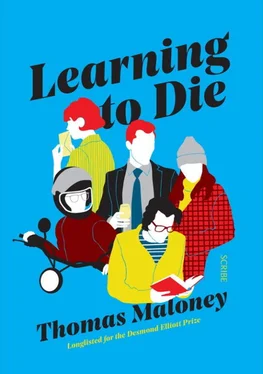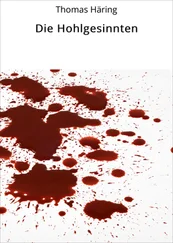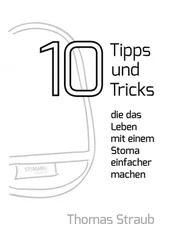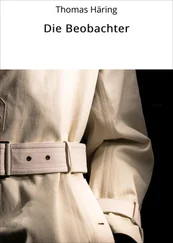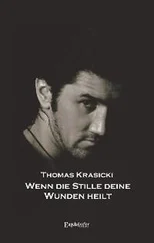Later he stands behind her at the sink, hands reaching round into the scalding water, pretending to help. He can’t see her face but her words are said through a smile. Greasy fingers interlacing; love in the washing-up bowl. She’s still holding his hand as she leads him up the stairs. He feels a euphoric blend of discovery and rediscovery. A mirror: the rediscovery of his own buried soul.
‘Have you seen tomorrow’s weather forecast?’ she asks.
James wants to laugh at the nonchalant timing of this question and all it signifies. He silently acknowledges the element pouring into his heart with luxurious abundance.
It’s material. Love doesn’t lie.
‘Cheers, old man. Belated Happy New Year.’
A clink of glasses. How many more times will Dan’s oldest friend wish him that? Once more? Twice, perhaps? It’s a home fixture for Dan this time, in Reading, the date agreed last week. Before. Just as well he doesn’t have to go far: the limp is worse, right foot clearly dropping, drooping, not every step, but now and then. Old man, yes.
‘I’m having a bit of weird one, so far,’ says Mike, oblivious of the pall of death that hangs over them.
‘Go on,’ invites Dan, setting aside his own intended opener. Mike glances around, checking that no one’s listening in, and begins in a low voice.
‘This isn’t something I’d normally talk about.’
‘It can’t be your sex life then. It must be money.’ Mike nods and grimaces.
‘It is money.’
‘Trouble at work?’
‘Not exactly — not at all. That’s just it.’ He looks genuinely nervous. His voice sinks to a whisper. ‘The thing is, I’ve made a lot of it. Money.’
Dan gives a short laugh. The distance between them has never felt so great as in this instant. He feels culpable, but he’s missed his moment.
‘That’s your problem?’
‘I know. I’m not complaining about it. I struck lucky. It all happened quickly at the end of the year. The thing is, I haven’t told anyone else.’
‘Am I allowed to ask how much?’
‘Enough to retire on, if I don’t buy a yacht.’ He makes a calculating frown. ‘Actually, I could probably buy a modest yacht, too.’
‘Vickers, you jammy dodger. Well. That’s the business you’re in, isn’t it?’
‘I don’t know what to do with it. And I don’t know what do with myself. I never wanted to be — you know — one of those people.’
‘Well, you are one. Relax. Give a little away, if it’ll make you feel better. Give some to your college — establish the Vickers bursary for ginger students.’
‘People talk about good causes, but I don’t know which causes are good. And if I just give it away, I’m back where I started — scrabbling for more.’
‘Then quit. Start your own business.’
‘Doing what?’
‘Jesus, Mike. Show a bit of initiative. What are you passionate about?’
Mike frowns, as though he’s never considered that question — or rather as though he has, but doesn’t know the answer. He’s always been like this. The world rewards grace, polish and a harmony of elements — attributes Mike has in spades — while Dan’s substantive passion leaves it indifferent, has to fight for recognition. Not that it matters now.
Mike asks him about work, about his family, about Nat, but not about his health — not a simple, ‘How are you?’ that would demand an honest answer. Dan finds himself preferring not to volunteer his news. It will pollute everything it touches, including friendships.
‘Regards to Nat,’ says Mike as they part. ‘Funnily enough, I had a dream about her the other night.’ Dan turns, and he and Mike stand looking at each other, five yards apart. ‘It was absolutely filthy.’ The years, the light years, fall away and then pile back up swiftly. ‘That was a joke,’ adds Mike, with a frown and a parting wave.
Dan must have forgotten to smile.
‘EAT DA RICH.’ Mike, homeward bound, notices the enormous lamp-lit graffito on the approach to Paddington. His eyebrow twitches. Boarding the train earlier this evening, on his way out to Reading with the commuter hordes, he observed the righteous anger of the passengers unable to board — raving, knocking on the glass — and the sulking, incremental accommodation of those standing in the aisle. Shuffle a few steps to gift a stranger the chance to say goodnight to his kids — but the gift isn’t given. A microcosm of haves and have-nots. Factions at war forever, like the young and the old, the sick and well, perhaps the lover and the beloved.
Mike, with his sculptures and his Audi, was already a have. What does that make him now? With freedom comes responsibility. So said Spiderman, maybe. Now that the central excuse, the central apology of Mike’s life — the necessity to earn his crust — has effectively expired, he feels moral obligations pressing down on him unsupported, inescapable: obligations to the fellow man who didn’t strike it so lucky, obligations to his family and friends, and, above all, obligations to himself.
He owes something to his past self, that accomplished, popular schoolboy — Ginger Knickers, they called him, but they admired him nonetheless — patiently expectant and expected-of; and he owes something to his future self, the bent old man looking back on his life, a cup of dread in his hands, searching for traces of worth. He even feels like he owes something to his as-yet unimaginable children — some achievement, some narrative to earn their respect. His life so far would set an incoherent example.
He can’t ignore a sneaking feeling of being hard done by. His very privilege and good fortune have given him no material with which to build his character. Is that his fault? He might, after all, have battled adversity or injustice as lustily as the next man. (The last time he suffered severe physical discomfort? He fell out of an overloaded hammock five years ago and fractured his kneecap. The girl, a curvy Spanish siren, fell on top of him.) He never asked for all this. Does he deserve to be judged?
You might think luck would even out — for every serendipitous swing an eventual roundabout — but even Mike is hazily aware that randomness doesn’t work like that. That’s the gambler’s fallacy. The truth is that unevenness persists. Those honest plodders at Oxford, whose tutorial work he copied religiously before outscoring them in the final exams — they’ll never see a payback.
So there it is: no misfortune, no adversity, no character (being thirty-three, in the absolute prime of life, is the crowning insult). What is he passionate about? Women, obviously — sculpted contours of a woman’s crossed legs, exquisite interplay of muscle and bone — but what else? Air travel. Chablis. Civilisation. Beautiful things. In days gone by, one could simply be a collector. Today, that doesn’t wash.
His train slides into the snug, curved holster of the station. Dan was in a peculiar mood. He looked overworked and underpaid. Should meet him again to get to the bottom of it. Can’t have miserable friends. Mike swings the door open and contemplates Brunel’s iron cathedral as he treads the long, gum-pocked aisle of Platform Four.
Dear James, he taps swiftly from the back of his cab.
Sorry it’s taken me so long to reply to your heartfelt, ego-felt defence of literature. I get all that. The problem, as I thought we had established, is that you haven’t produced any. What makes you think your ideas are better than everyone else’s? You’re like a crackpot evangelist, stubbornly traipsing from door to slammed door. Nobody cares.
He’s about to sign off, but then adds a second paragraph, not so swiftly:
Here’s a question for you. What would you do if you had absolute freedom? If money was no object? And don’t say you’d write — money can’t buy you your masterpiece, so you’d be in the same predicament there. What would you do if, say, you inherited a fortune? I’m sure literature has explored that plotline pretty thoroughly, so as a beneficiary of those insights, you ought to have a good answer.
Читать дальше
